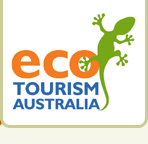| Educated
in Bangkok and had her Master and Ph.D. Degrees from the
Sorbonne University in Paris, France, Sasithara Pichaichannarong
was appointed Deputy Permanent Delegate of Thailand to UNESCO
in Paris from 1996-1998. She has taken up her post as Deputy
Permanent Secretary of the Ministry of Tourism and Sports
in October 2005 after having completed her 3 years as Director-General
of the Office of Tourism Development within the same Ministry.
Her experience in the field of tourism and her dedication
to creating a healthy and positive environment within which
the tourism industry in Thailand can grow and flourish has
been recognized in the special assignments she has spearheaded
over the years. She has been the Chairperson of The UNWTO
Committee on Sustainable Tourism Development, Vice Chair
of Regional Commission for Asia and the Pacific, Vice Chair
of Risk and Crisis Assessment and Management and also Chairperson
of Thailand's Technical Group of ISO's tourism Standard
and related services.
When Thailand was hit by Tsunami, she was in charge of Tourism
Strategy in cooperation with the Asian Development Bank
and Thailand teams. She was involved in developing effective
strategies for economic cooperation with neighboring countries
and is currently supervising the international relations
of the Ministry's portfolio.
At present, Sasithara Pichaichannarong is the Deputy Permanent
Secretary of the Ministry of Tourism and Sports of Thailand
and responsible for eco-tourism projects under Tourism Cooperation
of ASEAN (Association of Southeast Asian Nations).
Abstract:
Reviewed Strategy on Ecotourism for the Andaman Cluster
of Thailand: A Turning Point after Tsunami
The presentation is a summary of obstacles, problems
and further tourism development of Thailand Andaman cluster:
Phuket, Phang-nga and Krabi, severely affected by the Tsunami
Disaster in December 2004. The tragedy later revealed the
lack of knowledge and understanding on ecology, ignorance
on importance of environment and disregarding sustainable
tourism development. The damage led to an idea of focusing
on some prototypes of Phuket beaches, a central - local
government cooperation to implement tourism development
plan as a pilot project to encourage learning experiences,
know-how and participation in tourism destination rehabilitation.
The scale has later been enlarged to consolidate a National
Economic Development Plan for the 6 provinces in the Andaman
cluster named Sub-regional Development Plan for the
Tsunami affected Andaman Region consisting of overall
planning and strategies such as economic strategy, tourism
strategy, environmental strategy, infrastructure strategy
and risk management strategy. This Sub-Regional Development
Plan, a joint effort among numerous local and international
experts and authorities, supported by the Asian Development
Bank (ADB) and the Government of Thailand, is regarded as
a master plan of implementation for all stakeholders aiming
for sustainable social and economic development in this
part of the country.
The Andaman cluster is a high potential tourism destination
with beautiful nature and one of the greatest biological
diversity sites of Thailand. A wide rage of activities includes
wellness and health tourism, community-based tourism, MICE
(meetings, incentives, conventions and exhibitions) and
marine tourism. Access and facilities for tourists are at
all levels: domestic and international airports, marinas,
hotels, spa and resorts, restaurants, entertainment complex,
museums, exhibitions, duty free shops, home stay services,
adventurous treks and local handicraft villages.
Each province has been re-branded to accommodate the strategy:
Phuket has been recognized as a focal point for tourism,
education and economic development; Phang-nga: a small and
medium-sized investment zone, community-based activities;
Krabi: a special type of tourism destination, eco-tourism
zone, sport and adventurous tourism activities. The new
sub-regional plan also highlights on protection of nature,
waste water management, logistics control, zoning for pedestrians
and also tax enforcement for environmental management.
The presenter has had an opportunity to be responsible for
planning on development of the area since the day of the
Tsunami tragedy on December 26, 2006. She was a key person
in coordinating with the United Nations World Tourism Organization
(UNWTO) to host the Special Session of the Executive Council
in Phuket in January 2005 during which the Phuket Action
Plan comprising core contents on sustainable tourism development,
human resource development and crisis management was issued.
She was also responsible for coordinating in tourism sector
of the Sub-regional Development Plan for the Tsunami
affected Andaman Region.
|





